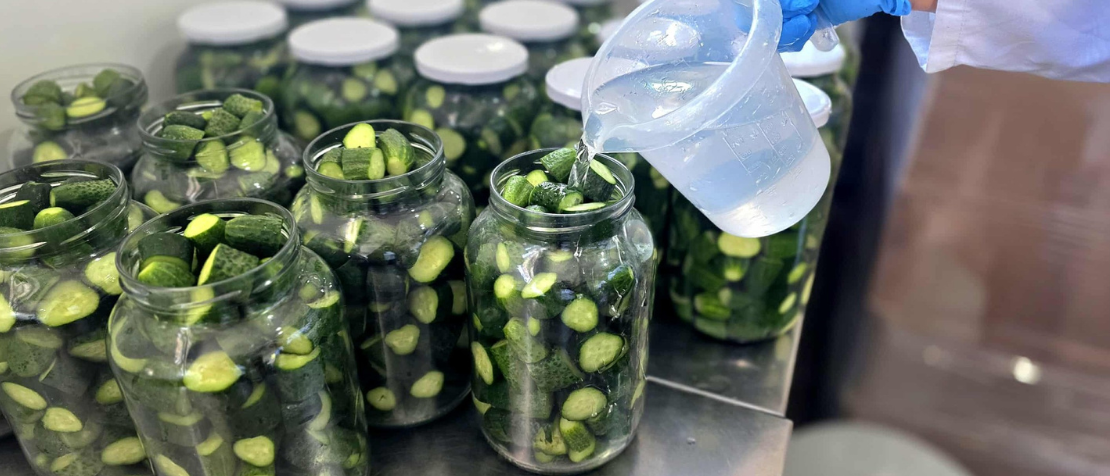Women farmers grow a resilient future in Kosovo
.png?sfvrsn=7ec7d5f7_3)
©UN Women/Donika Lamaxhema
Kosovo1 joined the world in marking World Food Day and the International Day of Rural Women, recognizing the vital role rural women play in agricultural development, sustainable agrifood systems and nutritious diets.
This year’s World Food Day theme, “Hand in Hand for Better Foods and a Better Future”, calls for global cooperation to ensure a peaceful, sustainable, prosperous and food-secure future. To highlight the day’s significance, Nadire Hasani, a woman from Frashër/Svinjare village in South Mitrovica, Kosovo, shared her experience in farming and community development. Her story embodies the spirit of collaboration and perseverance. With more than 15 years of experience in growing and processing vegetables, Nadire Hasani is part of an increasing number of rural women turning small-scale farming into a promising business.
Her products already are available in local markets, and she is working to reach new ones.
The project Promoting Rural Women’s Empowerment in Kosovo is being implemented by the Food and Agriculture Organization of the United Nations (FAO) and UN Women and funded by the Austrian Development Agency. Through the project, Nadire and other women farmers have strengthened their capacities through field training and tailored mentoring, and Nadire has further enriched her knowledge about sustainable methods for fruit and vegetable cultivation and agribusiness development.
Hands-on field demonstrations and technical training through the project helped Nadire improve her product quality and sustainability, she said, and they also inspired her to share with others in her community how she faces difficulties in her work. Nadire also took part in training on financial literacy and economic empowerment through the project.
While Nadire’s journey has been marked by dedication and success, she continues to face challenges, including limited access to advanced technical knowledge and the need for support to further expand her business. The project continues to support her by helping her meet food safety standards and adopt more sustainable production practices.
“I started on my own as a small farmer,” she said. “For over 15 years, I’ve been dedicated to vegetable production and processing, and it makes me happy to see other local women joining me in this journey. Together, we’re not only growing vegetables; we’re growing opportunities for our community.”
Nadire’s story reflects how when rural women have equal access to resources, training and support, they do more than cultivate crops: They cultivate progress for their families, communities and the future of the rural economy in Kosovo.
Naser Krasniqi, local team leader in Kosovo, emphasized the tangible results of the project:
“Empowering rural women through this initiative creates a positive chain of impact throughout the rural community. The commitment, skills and determination of Kosovo’s rural women for their economic empowerment inspire other women to be innovate and believe in themselves. This also triggers the support of community members, men and children, enhancing livelihoods and contributing to sustainable development.”
Rural women in Kosovo such as Nadire Hasani are the backbone of sustainable development. They inspire others to follow in their footsteps in agriculture and food processing. With commitment, learning and collaboration, they can succeed and become changemakers in their communities.

©FAO/Sihana Bokshi
1References to Kosovo shall be understood to be in the context of Security Council resolution 1244 (1999).
